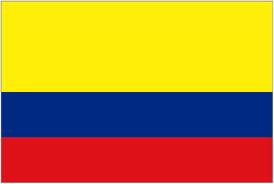 [Repost from the WCL IP Brief. Original post here. CC-BY] After the U.S. approved the FTA with Colombia, this South American nation sought to comply with the terms of the agreement by passing a new bill last April 10, 2012. Congress approved Law 1520 (a.k.a Ley Lleras 2.0) after only two weeks, with little debate. Senator Romero attributed the rush to President Santos’ urge to have the bill passed before Obama’s visit to Cartagena for the Summit of the Americas on April 14.
[Repost from the WCL IP Brief. Original post here. CC-BY] After the U.S. approved the FTA with Colombia, this South American nation sought to comply with the terms of the agreement by passing a new bill last April 10, 2012. Congress approved Law 1520 (a.k.a Ley Lleras 2.0) after only two weeks, with little debate. Senator Romero attributed the rush to President Santos’ urge to have the bill passed before Obama’s visit to Cartagena for the Summit of the Americas on April 14.
Critics are concerned the new law is more restrictive than what is required by the FTA and US copyright legislation. The new law bans the “broadcasting through the Internet by land, cable or satellite of television signals” without permission from the owner of the copyright for the signal or its contents. With this language, the law fails to provide safeguards for educational or other purposes contemplated under the “fair use” doctrine in U.S. copyright law. Moreover, this language would criminalize an individual user who shares a link to a video or an interview. In addition, criminal penalties in the new law are not only disproportionate (ranging from fines of 26.6 minimum salaries to 4 years imprisonment for even minor infringements) but also target both willful infringers and those who are simply unaware they are infringing upon someone’s copyright. Another concern is that the new law reduces the amount of nationally produced content that broadcasters must transmit on weekends from 50% to 30%. This is detrimental for local content producers as the purchase of foreign produced content is often cheaper for broadcasting companies.
Last May, Senator Jorge Robledo filed a 23-page complaint before Colombia’s Constitutional Court challenging the constitutionality of the new law. Robledo’s claim specifically targets the (lack of) procedure by which the entire law was approved in Congress and which violates Articles 142, 153 and 157 of the Colombian Constitution. The complaint then addresses two specific articles in the new law arguing that they clash with provisions of the Colombian constitution. Overall, Senator Robledo’s complaint explains that although Colombia’s Constitution protects authors’ rights, any legislation that serves that purpose must be reasonable and in balance with other Constitutionally protected rights such as access to information.
Senator Robledo argues that expanding copyright protection from 50 to 70 years for legal persons that are copyright holders through Article 6 of the new law violates Article 20 of the Colombian Constitution that protects freedom of expression and the right to information. For Robledo, rights holding companies already enjoyed huge profits throughout the previously established 50-year period of copyright protection. Extending the period for 20 additional years encroaches upon Colombians’ rights to access the information in the protected works.
Robledo is also critical of Article 13 which bans the broadcast of TV signals over the Internet without authorization from the rights holder. For Robledo, Colombia’s two most important TV stations earned close to US$ 900,000 in 2011 under the previous regime which allowed the rebroadcasting of TV signals over the Internet. Robledo believes these figures are more than enough of a return for the TV stations’ investment and sees no reason to grant them any further protection. Robledo also believes that banning the retransmission over the Internet without any type of exception for educational purposes is detrimental to Colombia’s progress.
Earlier this month, Colombia’s Attorney General Alejandro Ordoñez, submitted a brief document in support of the constitutionality of the Ley Lleras 2.0 and rejecting Robledo’s arguments. For Ordoñez, Articles 6 and 13 of the new law are not unconstitutional because free access to literary or artistic works is not a fundamental right. For the Attorney General, artistic and literary works are not “crucial” for life, as opposed to scientific, economic, political information as well as news. Ordoñez also explained that all literary and artistic works have a creator and a rights holder who has the power to decide whether the work can be accessed at no cost. Ordoñez’s assertions regarding Articles 6 and 13 were heavily criticized because of the distinction he draws between literary and artistic works, on the one hand, and scientific and economic works, on the other. Such distinction is not part of the new law and therefore cannot be invoked as an argument in its support.
The Colombian Constitutional Court is to issue a decision on the constitutionality of Ley Lleras 2.0 in 90 days. This is a new opportunity for this developing country to reassess how to balance incentives to innovation and creativity with access to information and the public interest.




